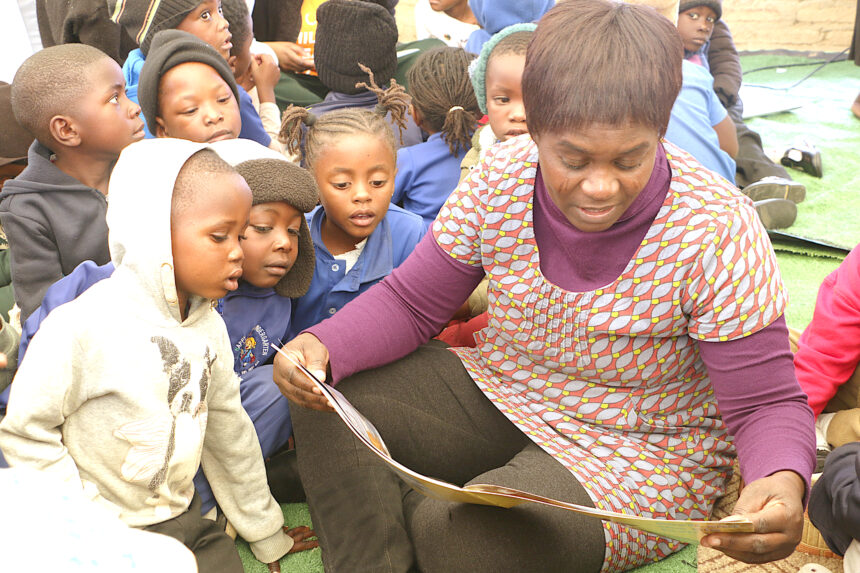Hilma Weber is a Namibian author, who was born and raised in the northern part of Namibia.
In the past two years, she has written four books as part of the Early Childhood Development Programme, ‘Play for All’, at Development Workshop Namibia.
She writes to ensure that her books reach children in underprivileged backgrounds, who may lack access to such resources.
Her passion for early childhood literacy was prompted by the lack of books in her childhood, and it was only in her early professional career that she discovered the pleasure and richness of reading.
“The topic of reading, literacy and being literate is broad, and does not entail only knowing how to read. Being literate means we can read and write – but most importantly, we can understand, process, communicate and interpret what we read. Literacy is one of the fundamental skills children need as part of their foundation years to be able to excel – not only in school, but in life,” she said. She added that behind the children’s sparkling eyes, there is a very curious and fast-developing brain.
“90% of the child’s brain develops before the age of five, and children learn a lot and fast during that period. Reading stories to children during this critical period of development fosters the love for books, and it can significantly enhance children’s cognitive and socio-emotional growth,” said Weber. The young author said reading is often associated with knowing how to read, reading to study, passing a test or examination with the best results, going on and studying at a university, and having a job. “Reading or having books is also often associated with schoolbooks only. A parent would say ‘go to school, and read your books so you can pass well,” she noted. She said she enjoys reading books for children in the informal settlements that she visits.
Recently, Development Workshop Namibia launched one of its series of Namibian storybooks for young children, designed to foster socio-emotional development.
These books will be distributed to parents and early childhood development centres in informal settlements. These innovative storybooks are aimed at children aged three to 10 years, and they are crafted to address key aspects of socio-emotional learning, including self-awareness, empathy, emotional regulation and relationship skills. Each story is thoughtfully written to engage young readers, and provide them with tools to navigate their feelings and interactions positively and constructively.
Lufina Kamoso, the founder of Happy Kids Kindergarten, said the centre was established in 2014, and they accommodate 178 children, ranging in age from eight months to six years.
“To the teachers, age-appropriate children’s storybooks are an essential part of a child’s learning, growth and development. When children are exposed to storybooks, they develop numerous skills, including brain development, language proficiency, emotional regulation, social interaction and listening abilities. For this reason, I encourage you to allow the children to use these books freely, as they have a profound impact on their overall development,” she said.
-priscillamukokobi@gmail.com


